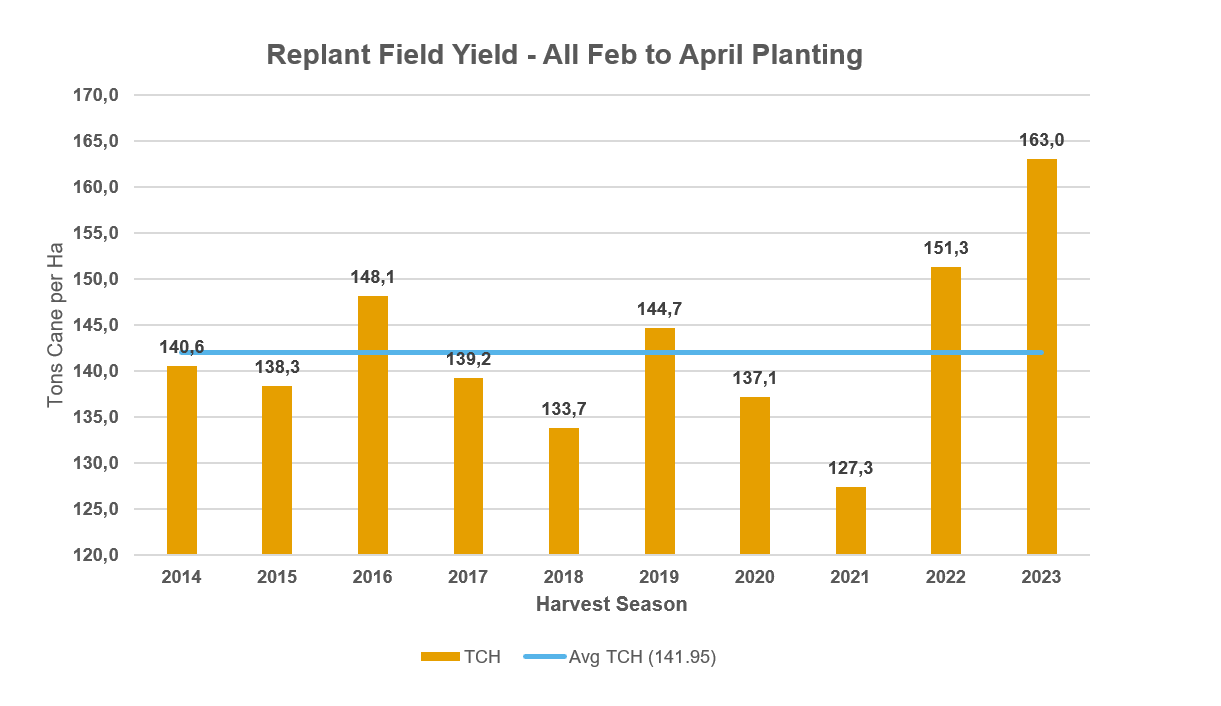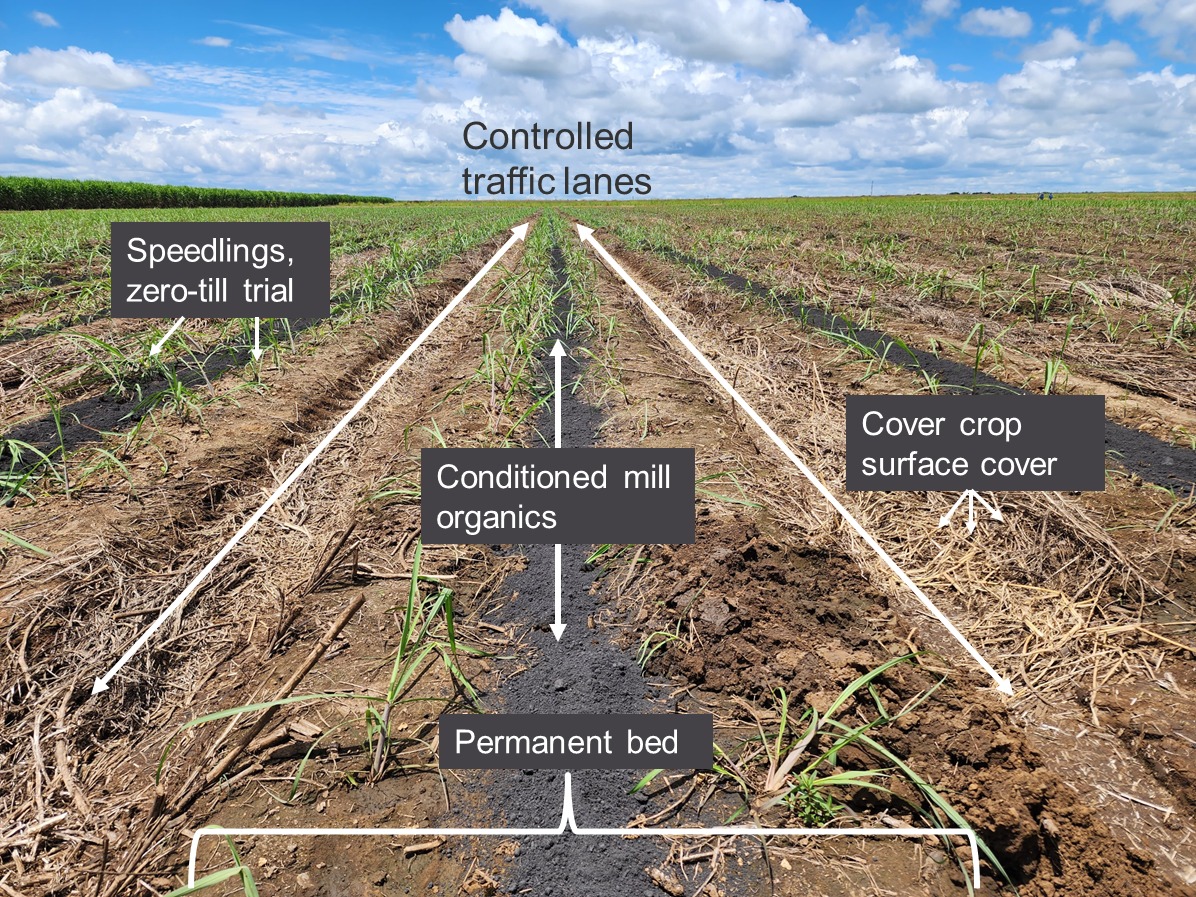In a concerted initiative to make substantial improvements to both resource stewardship and agricultural profitability, together with our strategic vision for sustainability, innovation and growth, we are adopting a “new synergistic farming system (NSFS),” at our Nakambala sugar cane estate in Zambia. Evidence gleaned from fields where key components of the new farming system have been implemented show that exceptionally high yields of close to 200 tons of cane per hectare have been achieved with indications of substantial improvements in soil heath, among other things.
Important components of the synergy chain inherent in the NSFS include planting the crop between February and April following a summer rotation crop. Because this timing coincides with the end of the Southern African rainy season and as a result creates challenging planting conditions, fields must be designed with:
- excellent surface drainage – to clear away excess water;
- controlled-traffic – to prevent soil damage, and
- innovative minimum tillage re-plant systems – to reduce soil disturbance.
Improved surface drainage on these fields is achieved through GPS machine-control on specialist land-forming equipment and advanced design software. Another component of the chain leading to substantially increased yields over time rests on ensuring that newly planted cane is aged to greater than 12 months, noting that under full scale irrigation cane is generally ready for harvesting within this time period. Planted earlier in the season, growth increments of the cane in the 13th and 14th months can be nearly double the average monthly increment over the first 12 months, leading to superior yields.

The high yields obtained when fields were planted in autumn following a sunn hemp rotation crop/green manure in 2022 and 2023 are evident. Even fields with drainage or other issues yielded relatively well under the system but there is much potential for them to yield even better if the drainage and other issues are addressed.
To improve soil health, fields are more frequently rotated with cover crops such as sunn hemp and infield compaction caused by heavy agricultural machinery is limited to permanent in-field traffic lanes. Minimising in-field traffic and limiting it to specific zones on as small an area as is practical, is achieved through better vehicle and row spacing design, and GPS machine-control, auto-steer systems.
In closing, Neil says: “While more effective drainage, irrigation, properly controlled traffic and better crop nutrient management, especially nitrogen, remain work in progress, there is strong evidence that the new synergistic farming system deployed here is an important contributor to sustainable resource stewardship and improved yields.”
This early success has resulted in the decision to convert further cane fields at Zambia Sugar to the new farming system which over time, will also be deployed to other our other Southern African businesses, such as Illovo Sugar Malawi and Ubombo Sugar Limited in Eswatini.
